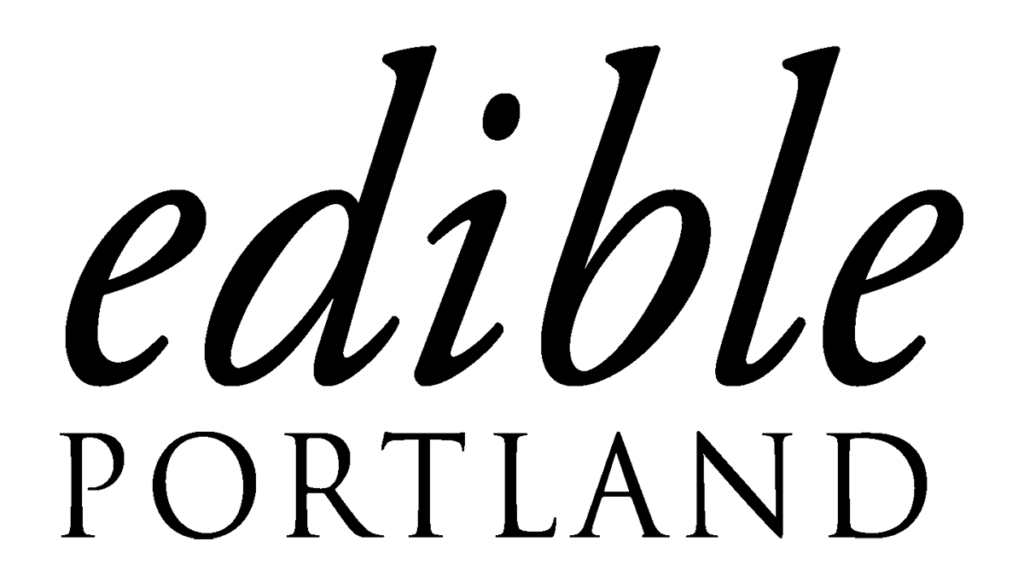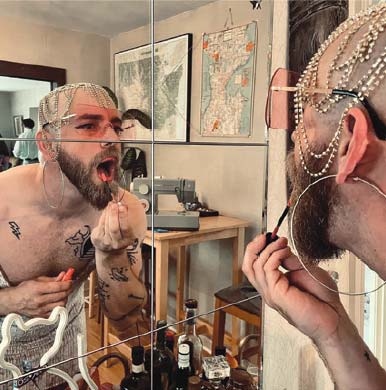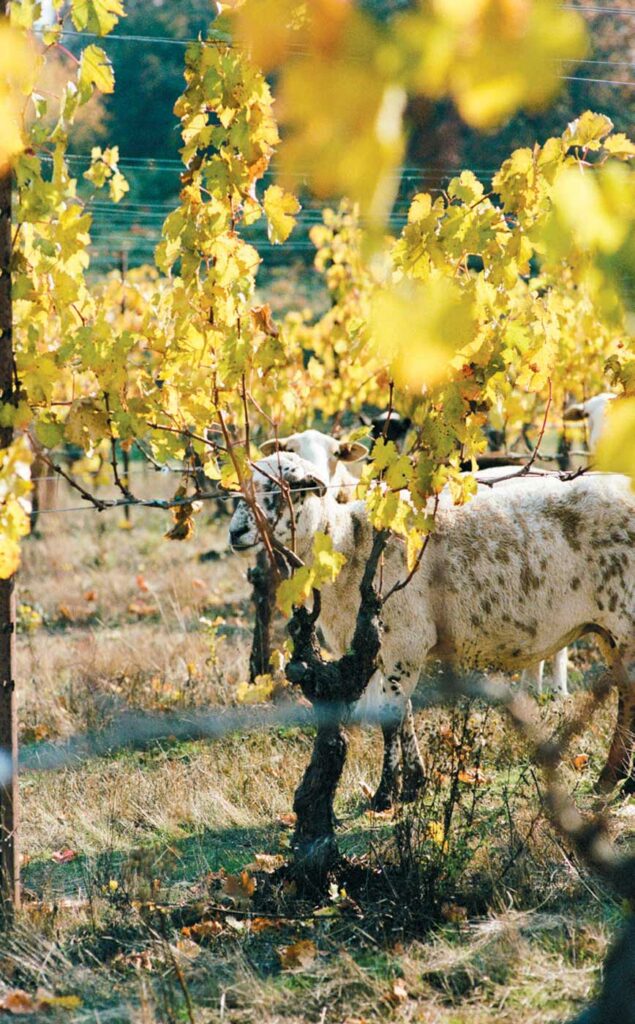
PHOTOS BY ROSS MALOOF
At the end of the last Ice Age, a 3,000 square mile glacial lake was dammed in by a wall of ice in Northern Idaho. As that wall melted and gave way, the contents of the Glacial Lake Missoula emptied into Northern Washington, down the Columbia River, and into Oregon before dumping into the Pacific Ocean. When this event occurred, the force of that much water took topsoil, rocks, and much more across that distance, depositing much of it into what is now named the Willamette Valley. The richness of all that topsoil ending up in our corner of the world makes the Willamette Valley one of the most fertile agricultural regions on Earth.
Nestled into the lush landscape of Oregon’s Willamette Valley, atop a mound of that Missoula flood potpourri of granitic rocks and soil, is Johan Vineyards: a 175-acre certified Biodynamic® estate vineyard and winery with 87 acres dedicated to growing 16 different varieties of grapes. Johan stands as a paragon of sustainable viticulture and ecological stewardship. As a current grape purchasing client and former employee of Johan, Chad Stock, says, “It might just be the most famous vineyard in the Willamette Valley at this Point.”
The first 63 acres of the site were initially planted in 2002 and 2003 with what client/winemaker of Bow & Arrow Wines, Scott Frank cheekily calls, “the mirepoix of the Willamette Valley: Pinot Noir, Chardonnay, and Pinot Gris” by a (now unimportant to this story) man who didn’t understand how farm law and real estate development law works and ultimately decided to back out from the project. The real story of Johan Vineyards began when it was acquired in 2005 by Dag Johan Sundby and given its eponymous name as a vineyard and brand.
After attempting to wrangle the land and make wine at a neighboring winery from his struggling fruit in his first two years, Sundby knew he needed help and aspired to convert the vineyard to organic farming to heal what had been done by conventional farming at planting. In 2007, he hired Dan Rinke, a graduate from Fresno State, to come on board as his viticulturist and catch-all wine guy to begin the conversion. Rinke had other plans and pitched farming the vineyard with Biodynamic practices and pursuing certification from Demeter. Demeter USA certifies US farms and ranches and their products as biodynamic. That much-coveted certification came after three grueling years of planting 25 additional acres of heritage clones and new varieties thanks to innovative minds like Scott Frank of Bow & Arrow, Chad Stock, formerly of Minimus, Omero, Craft Wine Co. and now with Constant Crush and David Hill, and Meredith Bell of Statera Cellars.
Since Sundby purchased Johan, it has been a site that sells fruit to other wineries. Some of those have been working with specific blocks for a very long time now. The longest-running client, Big Table Farm, has been purchasing some of the original plantings of Dijon Clone Chardonnay from Johan since 2010. To be transparent, my label with Meredith Bell, Statera Cellars, has worked with that same original Dijon Chardonnay since 2014. This is the first in a series of vineyard highlights I want to write about and this particular site stands out to me and many others as a place of utmost importance in the reshaping of the Willamette Valley as a region primarily known for world-class Pinot Noir but is now recognized as having the ability to grow many varieties.
During an interview with Johan’s winemaker, Morgan Beck, and Vineyard Manager, Nathan Wood, they listed 16 different wineries and breweries that have worked with Johan fruit over the years. Many of them are household names in the conventional and natural wine scene in the United States. Few vineyards in any state can boast the number of cultivars that Johan has under vine, and even fewer can honestly say that they have embraced regenerative agriculture quite to the level that Johan has.
The Bounty of Diversity
After the full transition to Certified Biodynamic, Dan Rinke took things further with regenerative agriculture techniques and putting no-till farming practices into action. Tilling soil may conventionally be a good way to take care of weeds and invasive plant species and a pathway for a quick dose of nitrogen via the decaying mown and tilled material, but it disturbs the natural microbiome and mycelium layer that ultimately makes good dirt do what it does best. After 14 years at Johan, Rinke moved on to pursue his own label, Art and Science, with his spouse, Kim Hamblin. Grape grower and self-described “Grape Cowboy,” Nathan Wood took up the mantle of managing the vineyards at Johan. It cannot be understated how difficult it is to work with 16 different grape varieties in a vineyard. Each grape ripens at various times, has its own eccentricities that need to be managed, and will often need to be on a schedule of tending that is entirely different than the grape in an adjacent block. Johan Vineyards has 50 different blocks of grapes growing across the 87 acres of vines they have planted!
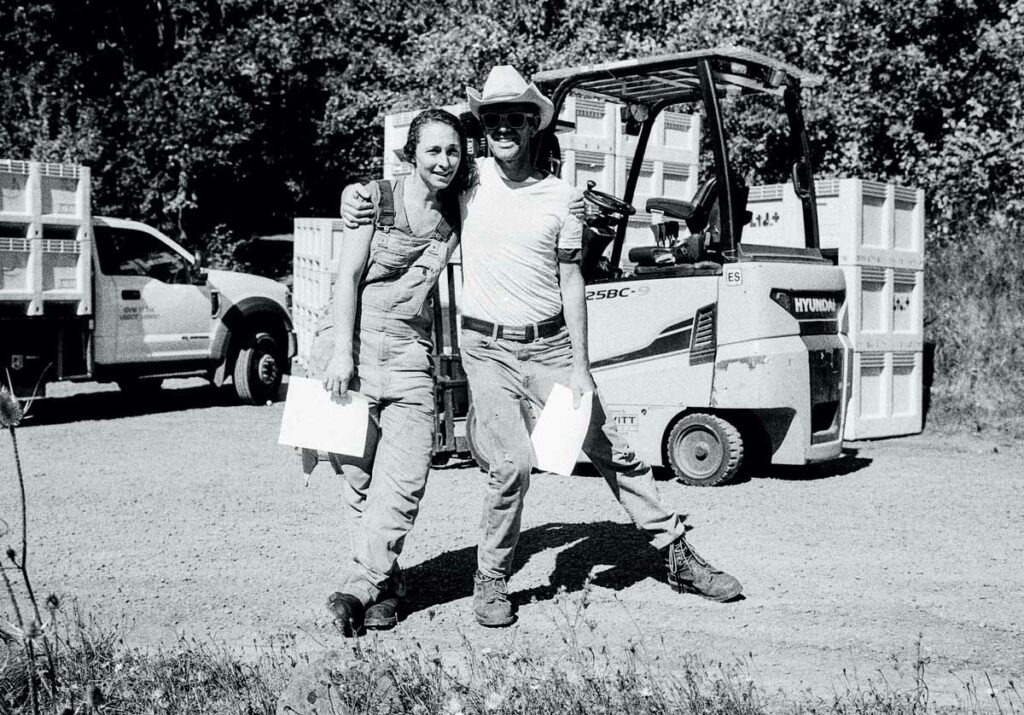
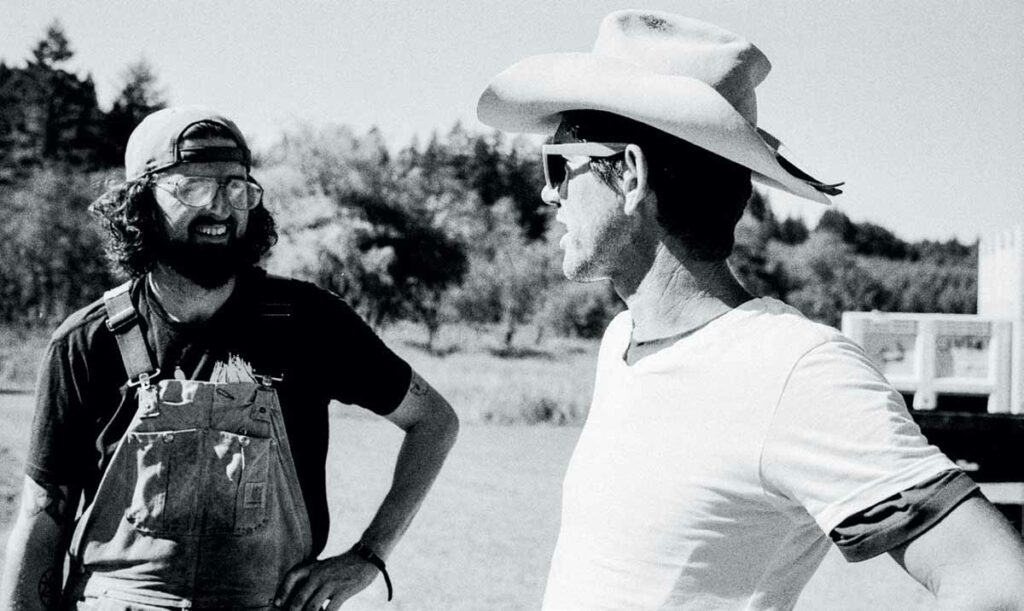
Despite being interviewed separately, Dan Rinke and Chad Stock used identical language to describe wine grapes made at the site. Both said the white wines grown at Johan have a signature savory quality. The reds, “sanguine.” You can’t make stuff like this up.
As Scott Frank put it, Johan is a vineyard that was “Plan B for some early buyers. They would ask for fruit as a backup if other plans failed.” Now, it is hard to imagine passing up the opportunity to purchase fruit from Johan.
Even still, Pinot Noir continues to be a difficult sell as it has been overplanted throughout the valley. There is a lot of supply and dwindling demand for the grape that once defined the Willamette Valley AVA. Johan was partly planted or grafted to so many grape varieties because both Rinke and Stock “saw the writing on the wall.” They knew that having something other than a monoculture would always benefit the whole. And the grand experiment has paid off. To purchase some cool kid grapes from the site, a client must purchase a specific volume of Pinot Noir. It’s only fair.
One of the vineyard’s most intriguing practices is its commitment to planting various grape varietals alongside one another. This interplanting technique not only enhances the vineyard’s resilience against diseases but also promotes a richer and more complex flavor profile in the wines produced. The philosophy behind this practice is rooted in the belief that a diverse ecosystem leads to healthier vines and, ultimately, more vibrant wines.
In addition to grapes, Johan Vineyards has also incorporated various cover crops into its vineyard management strategy. These crops, including clover and vetch, serve multiple purposes: they enhance soil health, attract beneficial insects, and suppress weed growth. By enriching the soil and creating a pollinator habitat, Johan Vineyards fosters an ecosystem that thrives without synthetic pesticides or fertilizers.
The wide array of Johan Vineyard’s plantings teaches a broader lesson: diversity is paramount. Whether in a garden, vineyard, or society, the more we see many able to participate individually to create a richer whole, the better.
The Role of Animals
A key element of the vineyard’s sustainable practices is the integration of animals into the ecosystem. When Wood came aboard as the vineyard manager, he envisioned putting animals to work on the property. In his words, “Johan has been and continues to be a progressive farming site. [It] is always moving forward.” Progress can seem to have a glacial pace when working with a piece of land. However, by integrating systems of life throughout the property, Johan Vineyards has seen rapid changes and a new avenue to capture the attention and interest of visitors. On any given day, one may see chickens happily scratching in the dirt, free to roam and forage among the vines, and their diet helps to manage pests naturally. Their scratch-andpeck behavior can break up soil and help aerate it, promoting a healthier root system for the grapevines. Additionally, the manure from the chickens serves as an excellent natural fertilizer, enriching the soil without applying synthetic options.
Sheep are rotated through the vineyard, grazing on grass and weeds, which not only keeps the undergrowth in check but also minimizes the need for mowing, which, along with their manure, continues to strengthen the soil biome of Johan Vineyards. This rotational grazing allows these animals to have a balanced diet while reducing tractor passes in the vineyard. This means less soil compaction in the soil biome and less fossil fuel is used on the farm. In his observations about less diesel being used in farming at Johan, Wood says, “[the sheep] save me two mow passes a year. Those are the mow passes in late April and May when it is usually wet and causing compaction.” It’s all a system, and the animals are as much a part of the team as anyone else.
A Dedicated Workforce
While the sheep and chickens are indeed hard at work, the heart of Johan Vineyards is its passionate and dedicated team. As previously mentioned, Dan Rinke worked at Johan Vineyards for 14 years before moving on to self-employment and pursuing his own label full-time. Head winemaker Morgan Beck has been with the company since 2015 after starting in the tasting room and moving through the ranks to where she is now. During our interview, Beck said of the former owner Sundby, “[he] did not come from a farming or agriculture background and fell into the business via the guidance and curiosity of his employees. Some of the best stories about Johan were born from the openness that Sundby had with allowing Rinke and me to forge ahead.”
The people who work here are not just employees; they are stewards of the land, each playing a crucial role in executing the vineyard’s vision for sustainability.
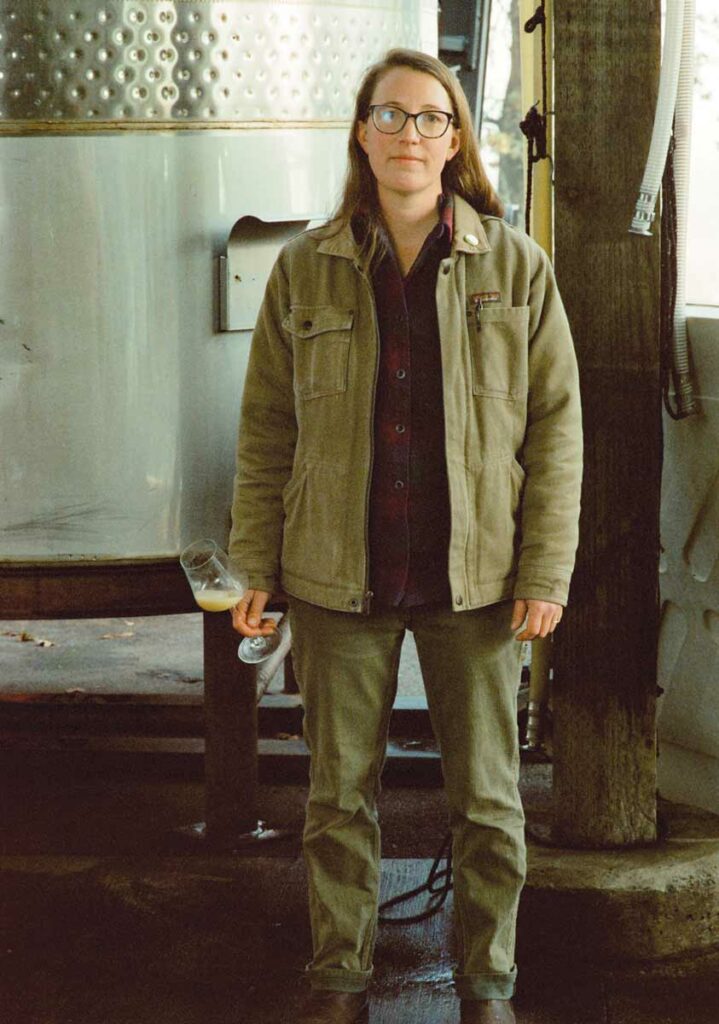
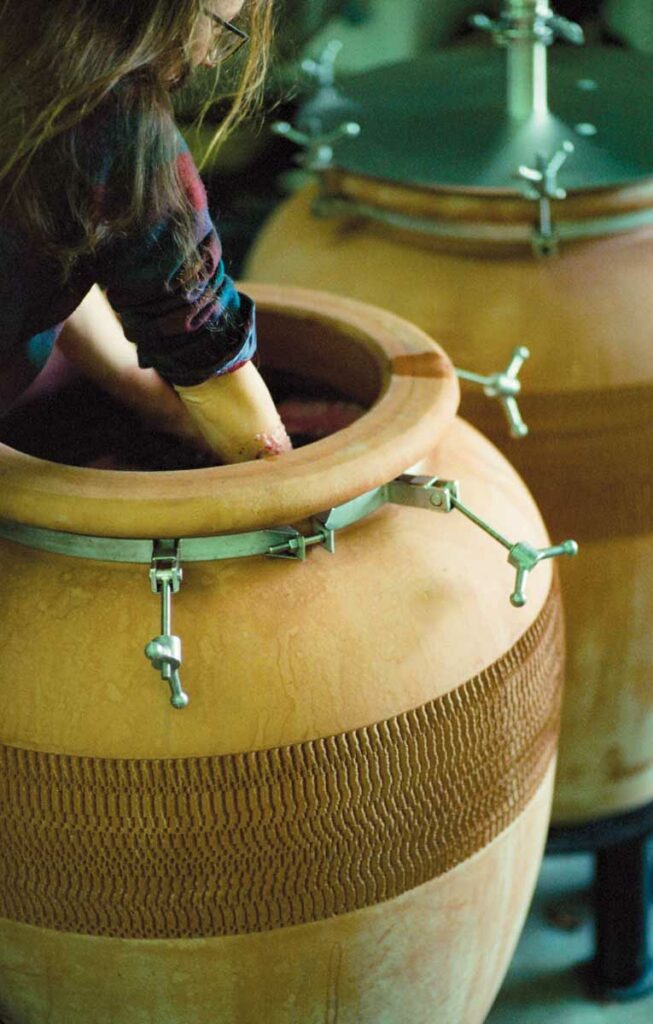
Each team member shares a deep commitment to organic and biodynamic farming principles, which underpin the vineyard’s practices. Wood and Beck enthusiastically spoke about one man, vineyard foreman Melchor Cabrera, who is backed up by his brothers, Arturo and Baltazar. “The real truth of it, how [Johan] can be this wild and crazy, is because of our vineyard foreman, Melchor Cabrera. He walks into a vineyard and grapes start growing. He’s the secret sauce.” Dan Rinke first hired Cabrera in 2008 and said, “I hired Melchor but Arturo was already there. I trained him and Arturo how to drive a tractor. When I hired Melchor, I don’t think he’d worked in vineyards at all. He started at the end of 2007, right at the end of harvest. One of the things that helps him and Arturo the most is that they went to work for another couple of vineyards and didn’t just stay at Johan the whole time. Melchor knows what to do. I got so comfortable with those guys that after the first couple years I didn’t need to tell them to do anything. They were just so on top of it, they had already done what I would have done.”
Training and education are paramount at Johan, ensuring that every employee is wellversed in sustainable practices. The vineyard hosts workshops and training sessions throughout the year, bringing in experts and encouraging staff to learn about the latest in sustainable viticulture. The entire staff views the property as the teacher with the knowledge they are collectively learning together. There is a warmth and unstuffy nature about each person’s expertise in their specific job that makes the whole place feel that much more alive.
In addition to the technical skills required for vineyard maintenance, the staff at Johan Vineyards also emphasizes the importance of community. They work closely with local organizations, schools, and community groups to promote sustainable practices and environmental stewardship. This engagement enriches the local community and reflects the vineyard’s commitment to being an integral part of the Willamette Valley landscape.
Community and Conservation
Johan Vineyards recognizes that sustainability extends beyond the vineyard itself; it involves fostering relationships with the surrounding community and the environment. The vineyard is actively involved in conservation efforts, participating in initiatives to preserve the natural habitats that surround their property. Wood says, “we have also had the Chemeketa Organic/ biodynamic class out for each of our Biodynamic processes in the last couple years, burying horns, adding preps to compost piles, just more continuing to include young folks in education.” There is a patience required in growing a vineyard. Nothing happens in a single growing season, and new vines take many years to reach maturity. The same can be said for how people develop and how their stories are stitched together with their experiences. The team at Johan has a deep understanding of this and is collaboratively working on the story of the land around them, their community, and themselves.
Much of the Willamette Valley has experienced significant changes due to shifting interest in Pinot Noir, economic hardships felt by the American wine market, and the decidedly modern problem of consumers always looking for the next cool thing. Johan Vineyards is one of those places that continues to be at the forefront of what is cool, and the team there is cultivating an environment of learning, growth, and passion that is palpable at the onset of any guest’s arrival.
In writing this story, I had the aspiration of writing a family tree like story about all of the clients that have or continue to purchase fruit from Johan Vineyards. While there is certainly a lot of history to be shared about them and how their use of fruit from this epic vineyard has shaped the perception of the Willamette Valley as a whole around the country, no story stood out to me nearly as much as that of the vineyard itself and the people who work with the land. I accumulated notes from over many hours of interviews with a number of winemakers, current staff, and people who have dedicated much of their professional lives to Johan Vineyards in one way or another. I knew it could be the beginning of something much larger, just like Johan Vineyards is to so many – even me.
This property has transformed from the beginning as a deposited mound of various kinds of soil and stones many thousands of years ago to another global event reshaping the world. Certainly, Johan is the vineyard to watch in the Pacific Northwest.
THE JOHAN FAMILY OF WINE PARTNERS
A Sunday in August
asundayinaugust.com
Instagram: @asundayinaugust
Montinore
montinore.com
Instagram: @montinore
The Grove: @thegrovemcminnville
216 NE 3rd St, McMinnville, OR 97128
Open Wednesday – Sunday 12PM – 7PM
(503) 857-0176
Woodinville
TR: @montinoreandlandlines
17401 133rd Ave NE, Woodinville, WA 98072
Open Wednesday, Thursday and Sunday 12PM – 5PM,
Friday – Saturday 12PM – 7PM
(425) 286-6761
Arabilis
Instagram and facebook: @arabiliswines
Tasting Room: 203 5th St Amity, OR 97101
By appt only, mail@arabiliswines.com
(206) 313-9555
Bow and Arrow
bowandarrowwines.com
Instagram: @bowampersandarrow
No tasting room, no visitors.
Bryn Mawr Vineyards
Instagram: @brynmawrvineyards
facebook.com/brynmawrvineyards
Tasting room: 5935 Bethel Heights Rd NW, Salem, OR 97302
Open daily: 11AM – 5PM
(503) 581-4286
Cowhorn Vineyard
cowhornwine.com
Instagram: @cowhornwines
Tasting room: 1665 Eastside Rd, Jacksonville, OR
Open Thursday – Sunday 12PM – 5PM
(541) 899-6876
Day Wines
daywines.com
Instagram & Facebook: @daywines
Tasting room: 21160 N Hwy 99W Dundee, OR 97115
Open Wednesday – Sunday 11AM – 5PM
(971) 832-8196
Division Wine
divisionwineco.com
Instagram: @divisonwineco
Tasting room: 2005 SE 8th Ave, Portland OR 97214
Tastings & tours available by appointment
(503) 208-2061
Goldback Wines
Instagram & Facebook: @goldbackwines
Tasting room: 111 Talent Ave Unit A, Talent, OR 97540
Open Thursday & Sunday 12PM – 8PM
Friday & Saturday 12AM – 9PM
(541) 897-0073
Limited Addition Wines
limitedadditionwines.com
Instagram: @limitedadditionwine
Tasting room: 3440 NW Bridgefarmer Road,
Gaston OR 97119
Open Friday – Sunday 11AM – 5PM or by appointment
(971) 901-1887
Maloof Wines
maloofwines.com
www.noclosradio.com
Instagram: @maloofwines
Tasting room: No Clos Radio, 6200 NW Gales Creek Rd,
Forest Grove, OR 97116
Open from Memorial Day – Labor Day, Friday – Sunday 12PM – 7PM
Monument Wine
ilikemonument.com
Instagram: @monumentwine
Perry Colin Wines
Instagram: @perrycolinwines
Statera Cellars
stateracellars.com
Instagram: @stateracellars
109 SE Salmon St, Ste B Portland, OR
Wednesday – Saturday 2PM – 8PM
Twill Cellars
Instagram: @twillcellars
Tasting room: 21775 SW Ribera LN, West Linn, Oregon, 97068
Open Saturday – Sunday 12:30PM – 5PM
(503) 638-7323
